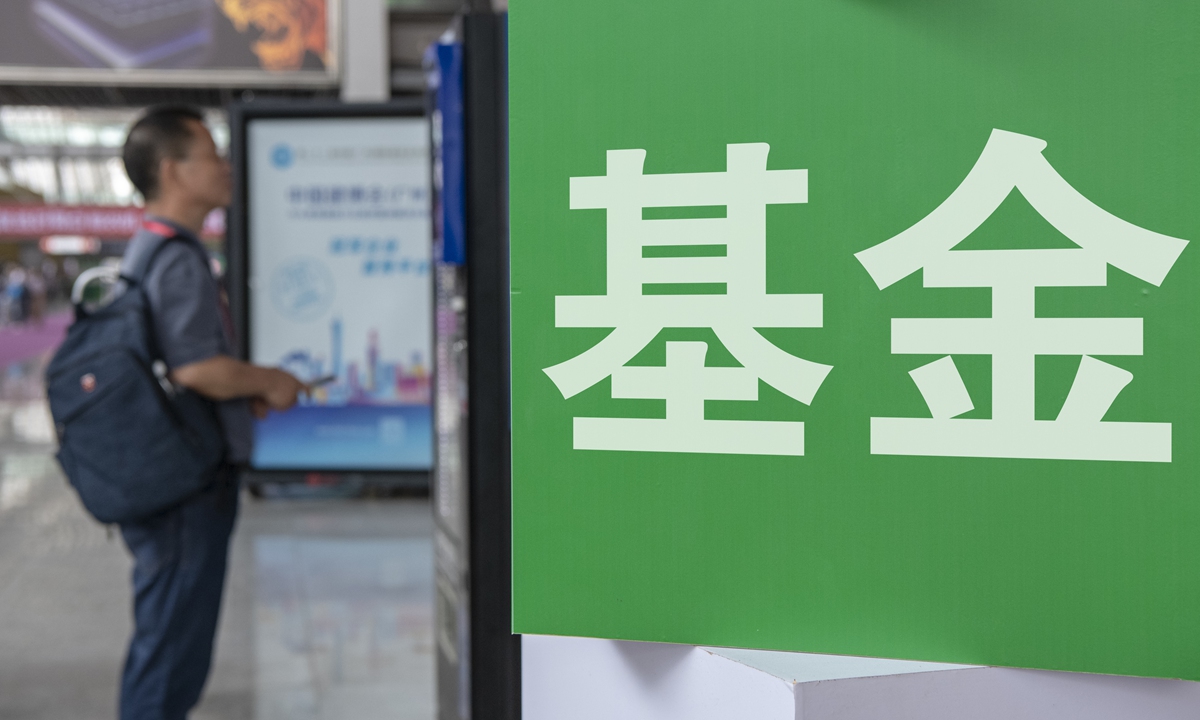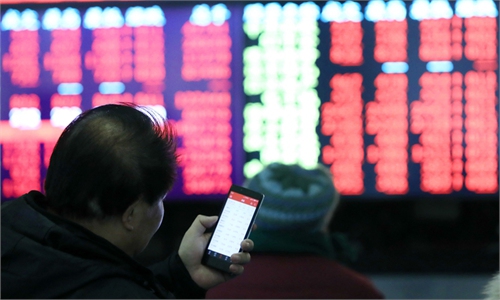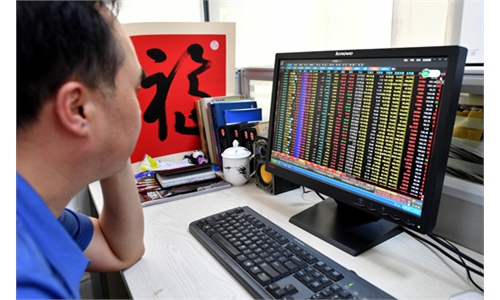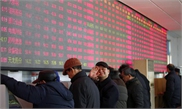Chinese mutual funds run by ‘star managers’ set withdrawal records as stock markets plunge

Creative photo shows a man standing in front of a green board that has the word of Fund. Photo: IC
Some Chinese funds run by "star fund managers" that have set a record of return rate are now setting another record of withdrawal rate, as investors rushed to get their money back from the funds for fear of more losses in the recent stock retreat.
The E Fund Blue-chip Collection, a mutual fund run by famous Chinese fund manager Zhang Kun, who is nicknamed "mutual fund big brother," has seen 22.48 percent withdrawal rate as of March 9 compared to its recent highest point, according to media reports.
Set up in September 2018, the fund has large positions in blue-chips stocks including Kweichow Moutai and Wuliangye. It has shrunk by more than 20 percent in values in the past month after those former darlings experience a sharp correction.
The E Fund Blue-Chip Collection has seen values surge more than 118.91 percent in 2020. In total, Zhang Kun manages funds worthy of 125.5 billion yuan ($19.3 billion) , the first active equity fund manager in China that has run more than 100-billion-yuan worth of funds.
Guangfa Shuangqing Upgrade A, a 19-billion-yuan mutual fund run by 2019 public fund champion Liu Gesong, had seen withdrawal rate of 23.95 percent by March 9 compared with recent highs, also the largest withdrawal rate since it was set in November 2018.
The fund, which invests heavily in lithium battery manufacturer EVE Energy Co and solar power firm LONGi Green Energy Technology Co, has seen values drop by about 21 percent in the recent month, although its net asset value has surged 233 percent since its establishment.
The fund was also the 2019 public fund champion, with a 121.69 percent return rate.
The fevered withdrawal rate is to some extent a reflection of a nascent investment market in China, where investors often jump on the bandwagon or draw out capital in a panic mood.
By 10:37 am on Wednesday, the Shanghai Composite Index rose by 0.34 percent to 3,370 points, while the Shenzhen Component Index rose by 0.49 percent to 13,541 points. The tech-heavy ChiNext board rose by 1.93 percent to ,2680.08 points.
So far, the benchmark Shanghai market has slumped by about 9 percent compared with the recent peak in mid-February, while the Shenzhen market has corrected by around15 percent.
Global Times



